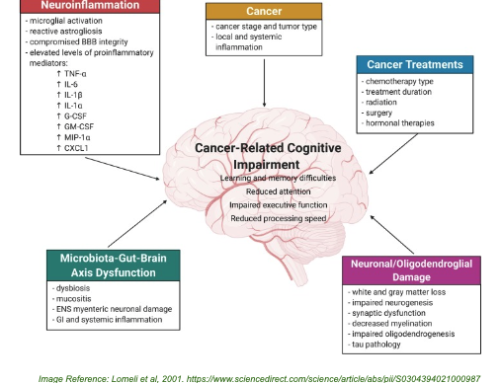The Ins and Outs of Online Healthcare
The remote community of Kimba has a serious problem.
They’ve been struggling to find a full-time doctor able to look after the town’s population of 650 odd.
In one instance, a doctor from a neighbouring area had to drive over an hour to help a child suffering a massive allergic reaction from a wasp bite. Another Kimba resident with a twisted bowel waited five hours before being able to speak with a doctor.
It’s a challenge shared by a growing number of regional towns across Australia, as the ongoing doctor shortage leaves rural communities vulnerable.
But that may be about to change.
Online Healthcare to The Rescue
What you may not know is that telehealth has been around for decades, with patients contacting their providers over the telephone. But with the digital age and creation of the internet, industries revolutionised across the world – and and with it, medicine and health care did too.
Online healthcare might be the answer for regional Australia’s search for GPs, but that’s only a small part of what it’s capable of.
As Australia’s digital network develops and new technology emerges, more of the conventional healthcare infrastructure becomes available online. Where simple video conferences might have been the norm a couple of years ago, patients can now get a range of services delivered through their computers or even mobile phone.
What are online healthcare services, and how do they fit into telehealth?There’s nothing mysterious about online healthcare services. They’re simply internet-based services used to deliver healthcare to patients. A prime example is GP consultations: instead of the doctor’s office, they can now be done by video conference. Online health is just one aspect under the broader telehealth umbrella, though the terms are used interchangeably. In typically dry fashion, the Australian government defines telehealth as the “use of telecommunication techniques for the purpose of providing telemedicine, medical education, and health education over a distance”. Telehealth ● Broad range of health-based services that use telecommunications to be delivered ● Includes online healthcare, but other things such as education or administration ● Also known as telemedicine or e-health Online healthcare ● Services that specifically help patients with health-related issues ● GP consultations, appointments with specialists and even pharmaceutical “visits” ● Used by doctors, hospitals, clinics and even insurers to support patients who may not get the same level of care if they had to rely on in-person. ● Online healthcare also extends to psychology, psychiatry clinical social work. |
“Patient Power” and Digital Health
As much as it’s enabled things, this revolution in healthcare wasn’t triggered entirely by the advances in technology and communications. Nor is it just a growing interest in younger, more tech-savvy consumers.
As a Mckinsey study showed, people of all ages expect and will be happy to use digital healthcare in the future, whether via email, website or smart app form. In fact, Australians already use the Internet for their health. An Ernst Young report found that over half of us (55%) have looked online for medical advice on a health condition, while over a third (41%) use the Internet to search for info on a medical condition.
But online healthcare services offer much more than allowing us to Google symptoms or do basic research.
There may also be another reason why online healthcare is catching on. In that same EY report, consumers were less likely to rate the Australian health system to the same standards doctors did.
Source: https://www.ey.com/Publication/vwLUAssets/ey-patient-experience-though-leadership/$FILE/ey-patient-experience-though-leadership.pdf
Not Just For Patients
While doctors’ opinions of the health system is more optimistic than patients’, , they’re not blind to the advantages online healthcare services can deliver.
The big benefit may be as simple as better work-life balance. Just as patients get frustrated by being churned through the factory-like approach some clinics take, doctors also get run down working long hours in this same environment.
It’s also a matter of efficiency: many appointments are simple follow-ups, long-term management check-ups or prescription renewals. These can all be handled more quickly — and cheaply — online. Research suggests that an online doctor’s “visit” is up to two thirds cheaper than a face-to-face appointment. Plus, doctors able to efficiently deal with more routine issues can spend greater time looking after patients with more serious or complicated problems.
But online health isn’t just the domain of doctors and patients. Insurers also receive benefits from the digital transformation of our healthcare.
They’re able to not just help their customers in geographically remote areas, but in many cases provide specialised care, whether that involves GPs, specialists or allied healthcare professionals. The administrative overhead can also be drastically reduced (or outsourced), which makes digital health a budget-friendly option for those keeping an eye on the bottom line.
What Lies Ahead for Online Healthcare
The rapid march of technology makes it hard to predict what’s waiting around the corner when it comes to digital health.
Some “smaller” advances are already an accepted part of our healthcare. Being able to book appointments online is now expected, video conferencing is becoming more frequent and the ability to safely share health data is not far behind.
Digital GP Visits: The Future of Online HealthWhile Australians are starting to enjoy some of the emerging health technology, other countries are “full steam ahead” implementing digital health services. The UK is one of the leaders in this move to Internet-based health. Their ambitious plan is to roll out online GP consults over the next 5 to 10 years, making them available to any and every patient who wants them. |
Further down the road, the potential technologies are staggering. We may see AI-guided decision making and wellness programs or personalised medicine. And like most industries, we’ll soon see Amazon as a major player.
No Longer a Pressing Problem
In a few years, it’s entirely possible that towns like Kimba still won’t have a full-time doctor living in their small community.
But thanks to the expanding availability of digital health, these remote areas won’t have the same urgent need.
As online healthcare becomes entrenched in our digital society, the benefits of saving time, dodging long waits and possible infections, getting better 1-on-1 care and the convenience of doing it from your own home makes sense.
Digital health may never entire replace the odd trip to the doctor or specialist, but it will mean these visits become the exception, and no longer the rule.
Online Healthcare to The Rescue
What you may not know is that telehealth has been around for decades, with patients contacting their providers over the telephone. But with the digital age and creation of the internet, industries revolutionised across the world – and and with it, medicine and health care did too.
Online healthcare might be the answer for regional Australia’s search for GPs, but that’s only a small part of what it’s capable of.
As Australia’s digital network develops and new technology emerges, more of the conventional healthcare infrastructure becomes available online. Where simple video conferences might have been the norm a couple of years ago, patients can now get a range of services delivered through their computers or even mobile phone.
For questions about our virtual healthcare services, please contact us at [email protected].
To submit a booking request online, click here: https://valionhealth.com.au/contact/



